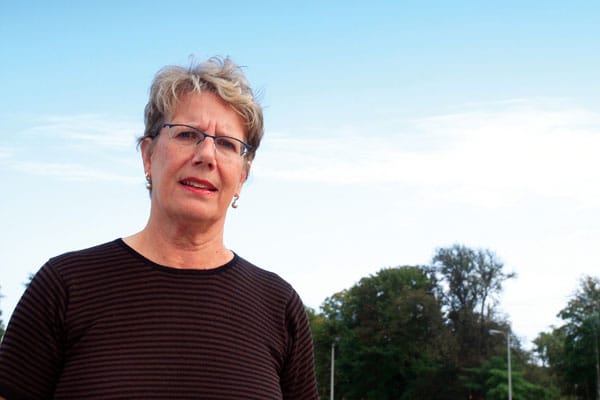Getting to know Hetty van Gurp.
In 1991, teacher and principal Hetty van Gurp's son Ben died as a result of a bullying incident when he was 14 years old. A few years later she created the League of Peaceful Schools, which promoted safe environments for students in Nova Scotia and across Canada through programs such as peer mediation. This work led Hetty to found Peaceful Schools International, which now operates in 13 countries, including war-torn Northern Ireland and the former Yugoslavia. For her work as an ambassador for peace, Hetty has been named a Canadian hero by Time magazine and one of Canada's heroes of 2006 by Reader's Digest.

Q What was school like for you?
A I don't remember it fondly, actually. I do remember several teachers who seemed to be cruel-a couple almost sadistic-so I lived in fear every day in those classes. It's not a happy memory for me.
Q Your son lost his life to bullying. Is it fair to say that got you moving on your current path?
A Yes, it did. I immediately started teaching peace education in my classroom. One thing led to another, and before long I was doing workshops and speaking at conferences throughout Nova Scotia.
Q How has your pursuit of peace helped you cope with your loss?
A It helped me focus on something positive. Sometimes people ask, why didn't you sue, why didn't you get angry. That just wasn't an option. I have this idea that the human being is not capable of holding two opposing emotions at the same time. The emotion that was overwhelming me was grief and sadness-I didn't have room for anger and bitterness and retribution.
Q Why does a child become a bully?
A Somehow it gives them a feeling of power, of leadership, of being admired because they usually have a group that hangs around with them. That's their way of acting out in order to gain some attention and maybe even feel better about themselves.
Q So, you don't believe kids are naturally aggressive.
A I don't believe any child is born with an urge to hurt somebody. I think it's something children witness and internalize.
Q When you created the League of Peaceful Schools for Nova Scotia, then Peaceful Schools International, you seemed to have more in mind than bullying.
A Absolutely. My focus has never been on bullying. It's on creating a climate of peace… in doing all we can to create a school climate in which kids feel safe. I don't usually talk about the problems. I like to focus on the solutions.
Q What innovations have you introduced to help schools work peacefully?
A Back in '91 we offered peer mediation training, but I'm always scouting for new ideas and suggestions. You've heard the story of the two Annapolis Valley high school students, David Shepherd and Travis Price, wore pink because a friend was bullied for wearing a pink shirt. I have the feeling that might be a tipping point in working on the problem of bullying. Here are two young men who have taken the problem into their own hands and have done something very creative and newsworthy. Those two boys did more than all of the experts in Canada assembled together.
Q "Leap, and the net will appear," is a favourite saying of yours. How does this apply to your own life?
A I can't really say I have a five-year plan. I live day by day; I respond to requests. I'm willing to take a risk. That's how I live my life, and it works for me.
Q Why go international?
A In Canada we've made some very impressive progress in creating safe and caring schools. When I visited countries like Serbia, they were at a loss for even knowing where to start.
Q Whether it's true or not, Canadians sees themselves as exporters of peace. Do you see yourself carrying on in that tradition?
A I never thought of it that way, but I believe the rest of the world looks upon Canadians in that regard. I think that we as Canadians are regarded as peaceful people. That's a nice way to think of it.
Q An honourary doctorate, a documentary film, three books under your belt, countless awards, a global movement: did you foresee any of this when you started?
A Absolutely not at all. I never really intended to do anything except help myself get through the trauma of Ben's death. It's taken on a life of its own.
Q You've said elsewhere that this work is for Ben - how so?
A He was such a gentle and loving boy that I think he would be proud. I think of him as I do the work every day. He's in my mind. It's what gives me the strength and motivation to keep going. I can think of no better legacy than this work. Because I do it in his memory, I don't really think of it as work-it's just how I choose to live my life.
